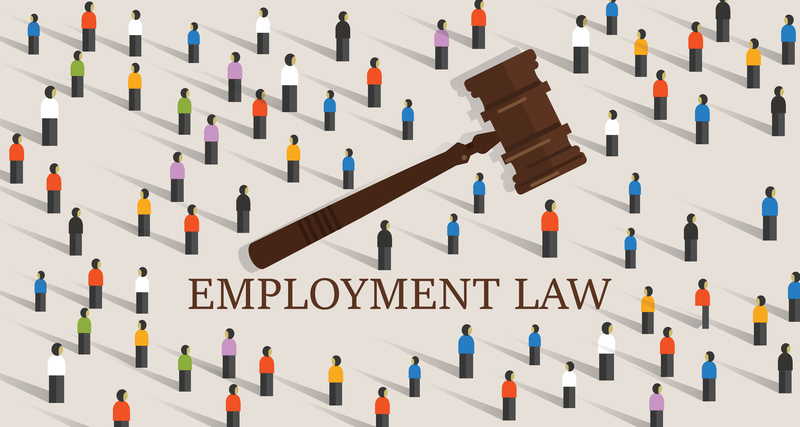Employment Law
Employment Law
Wrongful Termination
Employment Discrimination
Retaliation & Whistleblower Cases
Retaliation
There are many instances in which it is unlawful for an employer to take retaliatory action against an employee. Common forms of illegal retaliation include when the employee is:
1. Discharged or treated in a retaliatory manner (disciplined, suspended, harassed, etc.) for filing/pursuing a workers’ compensation claim;
2. Discharged or retaliated against for filing a charge of discrimination with the Ohio Civil Rights Commission (“OCRC”) or Equal Employment Opportunity Commission (“EEOC”);
3. Discharged or retaliated against for reasonable complaints of unlawful workplace discrimination and/or harassment (regarding age, race, gender, disability, national origin, or religion);
4. Discharged or retaliated against for making reasonable complaints about job safety issues, or filing a complaint with the Occupational Safety and Health Administration (“OSHA”); or,
5. Discharged or retaliated against for reasonable complaints of unlawful behavior by the employer, or for refusing to comply with an employer’s mandate to perform an unlawful act.
The damages on these claims can vary but may include reinstatement with back pay, lost pay and benefits, pain and suffering, as well as punitive damages and attorney’s fees and costs.
Family & Medical Leave Act Violations
Family Medical Leave Act
What is the Family and Medical Leave Act (FMLA)?
It is a Federal Law that permits certain employees to take off up to 12 weeks of work with a guarantee of job restoration if the employee returns to work within the allotted time.
Who is eligible to take leave under the FMLA?
To be eligible for FMLA benefits, an employee must: work for a covered employer;
- have worked for the employer for a total of at least 12 months;
- have worked at least 1,250 hours over the previous 12 months; and
- work at a location in the United States or in any territory or possession of the United States where at least 50 employees are employed by the employer within 75 miles.
Under what circumstances can an employee take leave under the Act?
The Family and Medical Leave Act allows eligible employees to take up to 12 weeks unpaid off of work during a 12 month period for one or more of the following:
- for the birth and care of the newborn child of the employee;
- for placement with the employee of a son or daughter for adoption or foster care;
- to care for an immediate family member (spouse, child, or parent) with a serious health condition; or
- to take medical leave when the employee is unable to work because of a serious health condition.
What must an employer do while an employee is out on leave?
- While on leave, an employer must maintain an employee’s health benefits on the same terms as if the employee had continued to work.
- Upon returning from FMLA leave, an employer must restore the employee to either their original job, or to an equivalent job with the same pay, benefits, and other terms and conditions of employment.
Under what circumstances will I have a claim against my employer under the FMLA?
- The FMLA prohibits employers from interfering with, restraining, or denying an employee the right to exercise their rights under the act.
- The FMLA also prohibits an employer from discriminating/retaliating against an individual who and practice relating to the FMLA.
- Most cases arise when an employer refuses to allow an eligible employee leave under the Act.
- Many cases arise where an employer fails to notify an employee of their right to take leave under the Act when placed on notice of a qualifying leave.
What should I do if I feel that my rights under the FMLA have been violated?
The time limits to file these types of claims may be as short as 2 years. Therefore, if you feel that your employer has violated the FMLA, you should either contact an attorney who handles these types of claims or contact the United States Department of Labor. For more information about your rights under the FMLA please visit the Department of Labor Website or send an email to Melanie V. Miguel-Courtad.
Disability Discrimination
Age Discrimination
Pregnancy Discrimination
Race Discrimination
Sexual Harassment
Gender Discrimination
Wage & Hour Violations
Overtime Compensation
Overtime Compensation
Most employees who work overtime at their jobs are protected under the Fair Labor Standards Act and Ohio Laws. Employees who work over 40 hours in a workweek are generally required to pay their employee at a rate of at least one and one-half times their regular rate. The law exempts certain employees who meet certain legal requirements. The courts will generally look to an employee’s job duties and not their job title when determining if an employee is exempt. The exemptions are as follows:
1.) Executive Exemption
2.) Administrative Exemptions
3.) Professional Exemptions
4.) Computer Employee Exemptions
5.) Outside Sales Exemptions
6.) Highly Compensated Individuals
To obtain more information on these exemptions please call our office for a free consultation. You can go to the Department of Labor’s Fact Sheet on these exemptions by clicking here.
If your employer is not paying you overtime then you should consult an attorney who specializes in this area and/or Contact the Department of Labor.
Additional information regarding overtime compensation can be found at the Workplace Fairness Website by clicking here.
